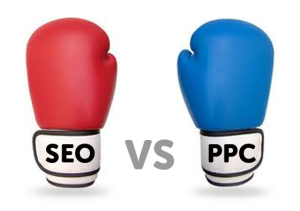 Pay Per Click advertising used to be the best possible way to encourage the search engine gods to work in your favor. PPC, as it is commonly called, is a method of purchasing spots within search results. They are listed as sponsored results, but are still relevant to the users initial search string. For website owners looking to gain web presence, pay per click advertising is an easy way to generate traffic.
Pay Per Click advertising used to be the best possible way to encourage the search engine gods to work in your favor. PPC, as it is commonly called, is a method of purchasing spots within search results. They are listed as sponsored results, but are still relevant to the users initial search string. For website owners looking to gain web presence, pay per click advertising is an easy way to generate traffic.
The Benefits of PPC
There are some significant reasons why anyone would use pay per click advertisements in order to gain website traffic. First of all, they immediately get your name out in front of a lot of people. On top of that, those people are the right people. PPC targets internet visitors who are searching for what your website is about. For website owners, it is a jump to the front of the line button that puts them in front of the consumers we are all competing for.
The Drawbacks of PPC
As good as PPC is, it has been limited by the behaviors of internet users. They know the result is sponsored and choose not to click it. According to web usage studies, the majority of users will not click on a search result if it has been sponsored. It is also very expensive. Even though PPC is delivering its promise of getting your website to the front of the line, what value does that serve if no one visits it?
How SEO Differs
Search engine optimization (SEO), is the practice of using techniques to appear at the top of the list without buying the spot. Called organic results, search engine results from websites that have been optimized read exactly like those that have not. Internet surfers, therefore, are just as willing to click on those as they would any other site.
Everyone Can’t Be In the Front
SEO can get you to the front of the line, but it can just as easily get someone else there too. Because of that, staying in front can be a competition that requires regular work. This is because the secrets of SEO are publically available. With a little time and motivation, anyone can be listed on top. Unlike PPC, which guarantees the spot, SEO spots must be maintained.
When to Choose Which
Because PPC will immediately put you in front, and maintain that spot for a certain amount of time, it is best suited for new websites. During that time, they can be exposed to users, even though they will most likely receive fewer clicks than the organic results. SEO can be used for any website that is comfortable with taking the time to not only develop into the top spot, but also maintain it.
Ultimately, the choice you make will depend on your website or company’s marketing budget and time to enter the market. If you just created a new product and are launching the website in the middle of November you may not have enough time to use SEO effectively to reach the holiday online shopping crowd.
On the other hand, if you created a hot holiday item and it is the middle of March; go for SEO. It will take a little bit longer to reach your top spots, but the returns will be exponentially higher than PPC, with higher click-thru ratios to your site. In this scenario, it is also important to look at the budget and make sure it is feasible. Shop around for SEO companies and find the most competitive rate.
Our guest blogger, Ryan Duncan, has been practicing website design and search engine optimization for the past 7 years and founded Funnel Boost Media in 2011. FBM is focused on providing a unique online marketing experience to it’s clients that brings results and focuses on branding at the same time. Located in the San Antonio, Tx area, Funnel Boost Media provides internet marketing solutions to businesses all over the South Texas region.

 You might think that writing ad copy is simple compared to writing a blog post or a landing page for a website, but it’s not.
You might think that writing ad copy is simple compared to writing a blog post or a landing page for a website, but it’s not.